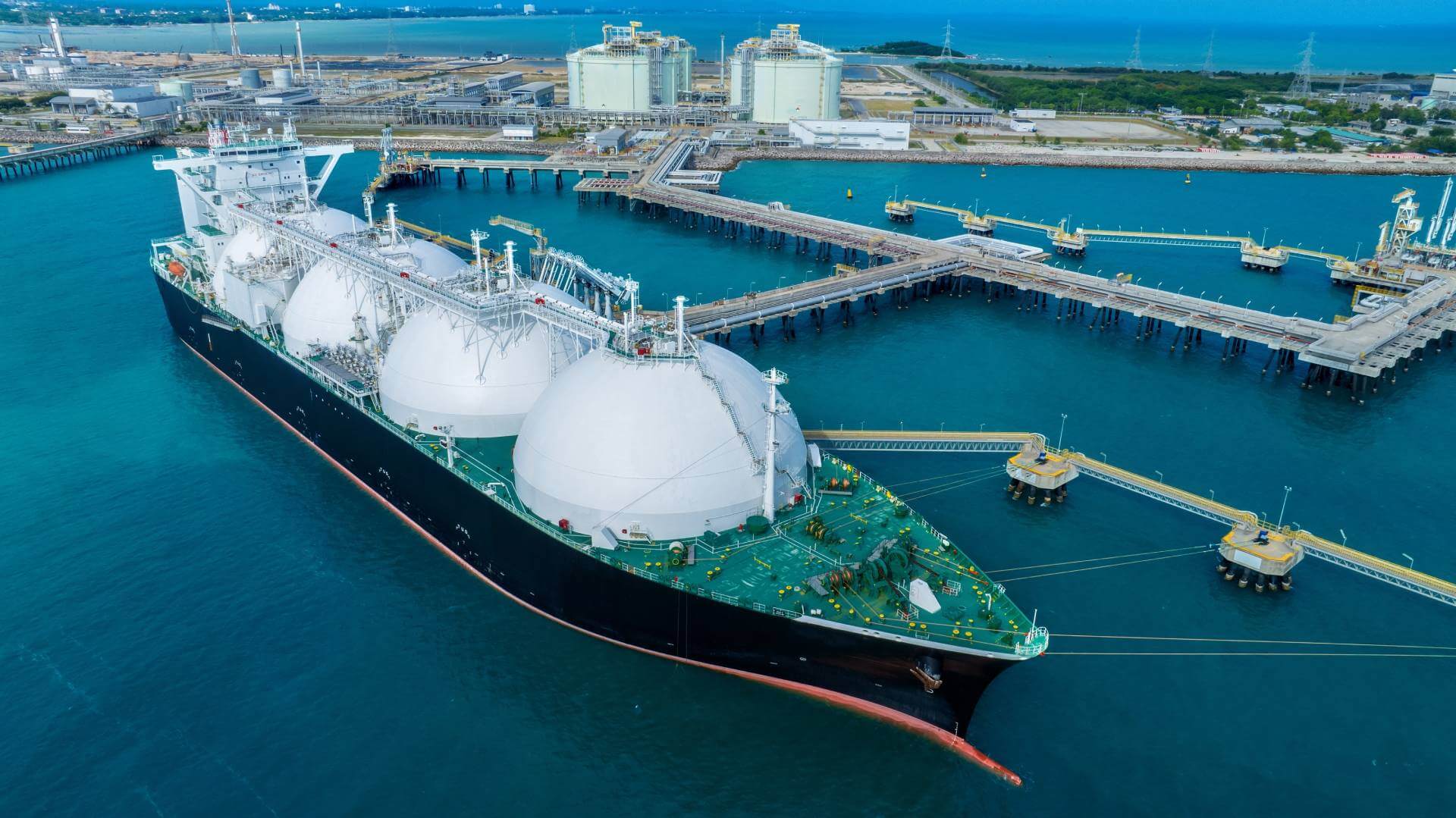Yesterday, the Biden administration decided to pause a decision on whether to approve new LNG export terminals which still need a permit by the Department of Energy (DOE), including one of the largest proposed facilities, Venture Global’s CP2 terminal, in Louisiana’s precious wetlands. LNG stands for liquified natural gas — aka, fracked gas. This pause is a big success for the climate movement, but it is a given that this pause would end with another Trump presidency, it cannot mean the Biden administration is off the hook. The US is still a major player in the proliferation of fossil fuels.
This is a step in the right direction after some disheartening developments last week. From January 16–19, 3,000 people attended to America’s Energy Summit in New Orleans. In 2024, you would assume — wrongly — that the conversation would be all about renewable energy. Instead, the summit was a veritable who’s who of the fossil fuel age. The list of platinum sponsors is headed by Commonwealth LNG, the company responsible for building LNG infrastructure.
That shouldn’t surprise anyone who’s been paying attention. Even though UN Secretary General Guterres stated that “fossil fuels are incompatible with human survival,” the US is still heavily involved in the industry. In complete contradiction to the commitments it made in the Global Methane Pledge at COP26 in Glasgow, the US is engaged in a massive build-out of fossil fuel infrastructure, especially in the Gulf region.
In only seven years of exporting LNG, the US has become the world’s top exporting nation. The demand for LNG has risen especially in Europe since Russia attacked Ukraine. One country in particular is especially eager to import US fracked gas: “climate champion” Germany. Ironically, Germany has a domestic ban on fracking. It is also led by a coalition government that includes the Green Party, which has long been the only German political party prioritizing climate protection.
Germany is still entangled in fossil fuels
Germany is in a bind. Until 2022, it was heavily dependent on Russian gas, importing more than half of its gas and over 30% of its oil from Russia. That dependency increased sevenfold in 2013 after Russia occupied Crimea and attacked Eastern Ukraine. Despite warnings from consecutive US administrations, the German administration under Chancellor Angela Merkel invested in a second pipeline, North Stream 2, in the Baltic Sea. The 2022 invasion of Ukraine discredited Germany’s foreign policy of Wandel durch Handel — Change through Trade.
At first, Germany continued sending more than $2 billion to Russia every month for fossil fuel imports, essentially funding Putin’s war. Yet the new German government managed to wean the country off of Russian imports in less than a year while also shutting down its last remaining nuclear plant. This action moved up its commitment to exit coal from 2038 to 2030.
But all of this progress — faster expansion of renewables, voluntary reduction of energy usage, and a focus on efficiency measures — does not mean a full withdrawal from LNG. Germany has signed contracts with LNG exporting countries like Qatar to import gas for fifteen years. Progress was also overwhelmed by the government’s decision to fast-track LNG import terminals all across its Northern coastline to benefit the German petrochemical industry.
Federal Minister for Economic Affairs and Climate Action Robert Habeck, a member of the Greens party, promises that the LNG terminals will be “hydrogen-ready,” that is, that the gas will someday be replaced by solar- and wind-powered (green) hydrogen. In doing so Germany could still keep its promise of reaching carbon neutrality by 2045. Experts are, at best, doubtful. Converting gas infrastructure to green hydrogen has never been done at scale. LNG providers and their investors may simply be playing the long game, eyeing a change in government in the coming years.
A recent study found that German banks, including Deutsche Bank and state-owned banks like Landesbank Baden-Württemberg, are heavily invested in building out LNG export terminals in the US. Their investments become stranded assets if gas were to stop flowing in fifteen years. This means that at minimum, the price tag for a conversion to green hydrogen production would be the public’s cross to bear.
Communities on both sides of the Atlantic are rising up in protest. Members of the German Ende Gelaende climate movement have held several protests on the Baltic Sea island of Ruegen where one LNG terminal is being built. Meanwhile, Healthy Gulf and the Louisiana Bucket Brigade are fighting against the LNG build-out by Venture Global and similar projects. These projects would be built in predominantly black and brown neighborhoods already heavily impacted by industrial pollution in Louisiana.
The fossil fuel industry has known for decades that their products would cause climate havoc. Yet rather than shift their business to renewable energy they continue to spread doubt and disinformation. Even politicians who say they understand the risk seem unable to resist their wicked charm.
The Biden administration’s decision to pause the expansion is a huge win for the climate movement, especially the people impacted at the front lines who have been fighting against this for years like Healthy Gulf. A pause is an important first step, but what is really needed to prevent climate chaos is a total cancellation of all fossil fuel build-out.
[Cheyenne Torres edited this piece.]
The views expressed in this article are the author’s own and do not necessarily reflect Fair Observer’s editorial policy.
Support Fair Observer
We rely on your support for our independence, diversity and quality.
For more than 10 years, Fair Observer has been free, fair and independent. No billionaire owns us, no advertisers control us. We are a reader-supported nonprofit. Unlike many other publications, we keep our content free for readers regardless of where they live or whether they can afford to pay. We have no paywalls and no ads.
In the post-truth era of fake news, echo chambers and filter bubbles, we publish a plurality of perspectives from around the world. Anyone can publish with us, but everyone goes through a rigorous editorial process. So, you get fact-checked, well-reasoned content instead of noise.
We publish 2,500+ voices from 90+ countries. We also conduct education and training programs
on subjects ranging from digital media and journalism to writing and critical thinking. This
doesn’t come cheap. Servers, editors, trainers and web developers cost
money.
Please consider supporting us on a regular basis as a recurring donor or a
sustaining member.
Will you support FO’s journalism?
We rely on your support for our independence, diversity and quality.










Comment